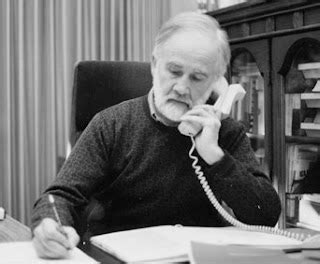A Quote by Gwynne Shotwell
Consolidating to the point of monopoly has never served the consumer - ever.
Related Quotes
If a company is not a monopoly, then the law assumes market competition can restrain the company's actions. No problem. If a monopoly exists, but the monopoly does not engage in acts designed to destroy competition, then we can assume that it earned and is keeping its monopoly the pro-consumer way: by out-innovating its competitors.
The great danger to the consumer is the monopoly -whether private or governmental. His most effective protection is free competition at home and free trade throughout the world. The consumer is protected from being exploited by one seller by the existence of another seller from whom he can buy and who is eager to sell to him. Alternative sources of supply protect the consumer far more effectively than all the Ralph Naders of the world.
We all know of course, that we should never ever ever ever ever ever ever ever ever ever ever ever ever ever ever ever ever ever ever ever ever ever ever ever ever ever ever ever ever ever ever ever ever ever ever ever ever ever ever ever ever ever ever ever ever ever ever ever ever ever ever ever ever ever ever ever fiddle around in any way with electrical equipment. NEVER.
I think the single biggest thing that money gave me-and obviously I came from a place where I was a single mother and it really was hand to mouth at one point. It was literally as poor as you can get in Britain without being homeless at one point. If you've ever been there you will never, ever take for granted that you don't need to worry. Never.
There is already something like a Jewish monopoly in high finance... here is the same element of Jewish monopoly in the silver trade, and in the control of various other metals, notably lead, nickel, quicksilver. What is most disquieting of all, this tendency to monopoly is spreading like a disease.
Excess consumption doesn't make people happy. We can continue to provide for our needs, but we can't continue the endless pursuit of ever more consumer goods. There is no energy source that can provide enough consumer goods to meet our human and emotional needs; there never has been, and that's why it's been such a fruitless pursuit.
The mere possession of monopoly power, and the concomitant charging of monopoly prices, is not only not unlawful, it is an important element of the free-market system. The opportunity to charge monopoly prices - at least for a short period - is what attracts 'business acumen' in the first place; it induces risk taking that produces innovation and economic growth.



































